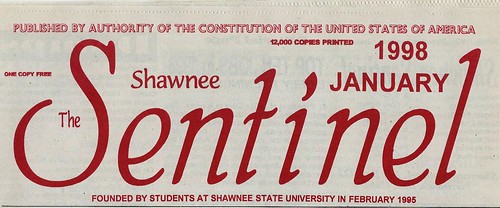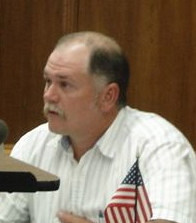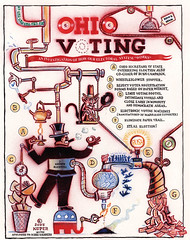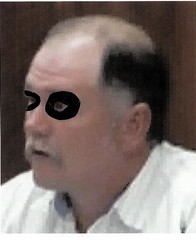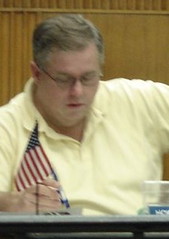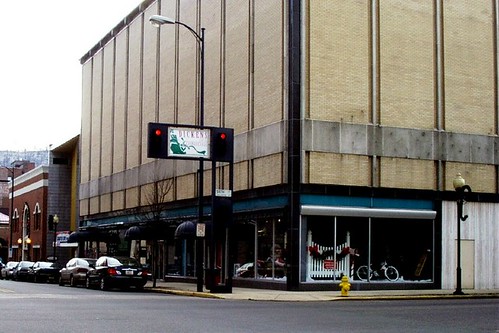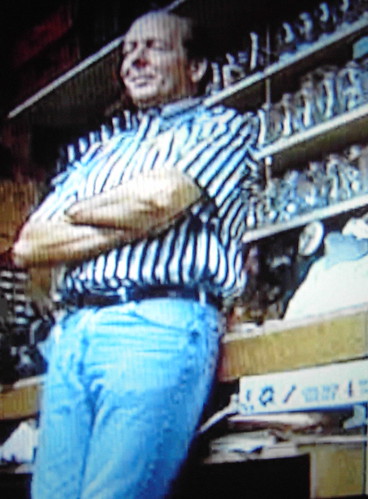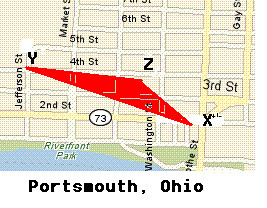
Headquarters of Shadow Govt.
It has happened gradually and unobtrusively, without most people being aware of it, but over the last half century, important functions of Portsmouth local government have been privatized. The result is that we now have a powerful shadow government, the origin of which can be traced back to 1964.
To quote from an earlier River Vices posting, “in March 1964, the Portsmouth City Council made a momentous decision. In a resolution, numbered unlucky #13, the council turned much of the economic control of the city over to a private ‘non-profit’ corporation named the Portsmouth Area Community Improvement Corporation (PACIC). In Resolution #13, the Portsmouth City Council granted PACIC an extraordinarily broad mandate. The mandate of this private corporation, consisting mainly of businessmen, bankers, and lawyers, was no less than ‘To promote the health, safety, morals and general welfare of the inhabitants of the community . . .’ In the following year, 1965, the Ohio state legislature passed a law allowing municipalities to designate community improvement corporations, such as PACIC, as their agent. As if PACIC hadn’t already been granted extraordinary power in Resolution #13 . . . , the Portsmouth City Council passed another resolution (#30), designating PACIC as the city’s official agent, or legal representative.” PACIC eventually morphed into the SOGP.
Working with other community improvement corporations (CIC’s) and with other unelected quasi-public officials, the Southern Ohio Growth Partnership (SOGP) has come to do the heavy financial lifting in our municipal affairs. A shadow government has evolved in the Portsmouth area made up of a bewildering array of acronyms, not only SOGP but GPEC (Greater Portsmouth Enterprise Community), CAOSC (Community Action Organization of Scioto County), SOPA (Southern Ohio Port Authority), etc.
Through pork projects and abatements, the SOGP has choked the tax base of Portsmouth, weakened initiative, encouraged collusion, and stifled the local economy. The worse it got in Portsmouth, the more pork the SOGP could rustle from state and federal governments.
To finance its activities, our shadow government depends not directly on taxes, as our city government has to do, but on streams of pork dollars from public and quasi-public sources. One of the largest sources of pork for Portsmouth and the SOGP, ironically, is the U.S. Dept. of Agriculture (USDA), but there are many other sources. Under the arrangement that has evolved in the last half century, our usually inept and subservient city government handles the small change, relatively speaking: the SOGP handles the big bucks. For example, the 2003-2004 records of the SOGP lists over $20 million in “bank investments,” some of the recipients of which are current or past members of the SOGP. The SOGP has handled hundreds of millions of dollars. The city government, by contrast, is left to squabble over whether the mayor should get a new automobile or whether there is money to fix the leaky roof of the Municipal Building. Portsmouth’s real city hall is not the Municipal Building but the new Welcome Center, where the SOGP has its headquarters. It was USDA pork that made the construction of the Welcome Center possible.
Given the limitations of local government, it was to be expected that in the evolution of local and county government an alternative to the traditionally ineffective, subservient, and corrupt local government would arise. The number of Bob Mollettes have been too few and far between in city government. The vehicle for this new non-elective, shadow government are “community improvement corporations,” the CICs. To quote from a handbook for county commissioners, “A community improvement corporation (CIC) is a nonprofit corporation organized under the provisions of Chapter 1724 of the Revised Code for the sole purpose of promoting, advancing and encouraging the industrial, economic, commercial and civic development of the area.” In a report on CICs, the Columbus Dispatch (2/6/95) quoted Mike Shannon, a lawyer who had served as state community improvement corporations coordinator from 1985 to 1988. “They[CICs] can do everything from street beautification to economic and industrial development.” Shannon added, “They [CICs] can make loans to businesses or partnerships under certain conditions; acquire property by such means as purchase or eminent domain; and assume control of businesses in financial trouble.” Mary Bearden, Dublin Ohio’s economic development coordinator, told the Dispatch that CICs “have the rights and provisions by law to act as developers, to buy land and develop property, but at an arm's length away from bureaucracy.” What Bearden means by bureaucracy is local government, local elected officials, or what we might generalize and call the vestiges of local democracy. That is what has to be kept at arm’s length.
In other words, CICs privatize local and county government; they turn government, and especially the financial aspects of government, into a business. “It’s hard for cities to function like a business,” Shannon said. It’s hard for cities to function like a business principally because there are all those bothersome details of the democratic process to deal with, like voters, elections, and public accountability. CICs members are not elected, they are appointed and therefore are not subject to recall. They are not subject to open records laws requests either. They are required to make only annual budget reports, and the reports of the SOGP can be very hazy. For example, in a SOGP bare budget report for 1997, of $314,000 allotted for something called a Small Business Education Center, $252,861 had been spent. Just what was the Small Business Education Center that SOGP had spent a quarter of million dollars on? In a letter dated May 6, 1997, Wally Leedom on behalf of the Shawnee Sentinel requested a detailed breakout of the budget and a clarification on the Small Business Center. There is no indication he ever got a response. A shadow government, run like a business, can stonewall in such a situation, as I have discovered several times when I tried to get information. CICs like the SOGP can get away with, well, if not murder, at least highway robbery, as the folks at Enron did.
What happened in Portsmouth was that responsibility for the economic growth of the area was taken out of the hands of the local and county government and put into the hands of a private, putatively non-profit corporation that was made up of the influential and wealthy individuals in the community, mostly lawyers, bankers, and business people, most of whom had never sunk to running for public office but who were only too willing to serve on a community improvement corporation. Why were they so willing to serve on CICs? To adapt the famous remark of Willy Sutton, because CICs are where the money is. Before there were CICs, the greedy businessman actually had to get his hands dirty and run for local public office. Not anymore, not when there are CICs.
Many people have been led to believe making government more businesslike is the best possible thing that could happen. But is it? Business people and chambers of commerce would have us believe businessmen are a blessing and the heros of the American economy. That's not the lesson I derive from American history. The famous investigative journalist Lincoln Steffens wrote early in the last century, “There is hardly an office from United States Senator down to Alderman in any part of the country to which the business man has not been elected; yet politics remains corrupt, government pretty bad, and the selfish citizen has to hold himself in readiness like the old volunteer firemen to rush forth at any hour, in any weather, to prevent the fire; and he goes out sometimes and he puts out the fire (after the damage is done) and he goes back to the shop sighing for the business man in politics. The business man has failed in politics as he has in citizenship. Why? Because politics is business. That’s what’s the matter with it. That’s what’s the matter with everything—art, literature, religion, journalism, law, medicine,—they’re all business . . . The commercial spirit is the spirit of profit, not patriotism; of credit, not honor; of individual gain, not national prosperity; of trade and dickering, not principle. . .”
President Calvin Coolidge said the business of America was business. That was before the stock market crashed in 1929 and Americans sufferred economically for nearly a decade. The head of General Motors said that what was good for General Motors was good for the country. Tell that to the auto workers who are losing their jobs and their benefits. Thoreau said, “I think that there is nothing, not even crime, more opposed to poetry, to philosophy, ay, to life itself than this incessant business.”
From the Bible to Thoreau’s Walden to Das Kapital, we are warned that money corrupts, and a lot of money corrupts absolutely. Everybody who is in the business of making money, every business person who seeks to increase his or her profits, runs the risk of being corrupted by the process. Even people from humble religious backgrounds, as Ken Lay claimed to be, are not immune to becoming corrupted by money. And it is not just supposedly pious Christians but supposedly pious Jews, such as Jack Abramoff, who can resist the lure of staggering profits. Everyone seeking to maximize profits, to making as much money as possible, which is another side of being businesslike, is a potential liar and crook. Money, like atomic energy is tremendously powerful and capable of doing much good, but it is also capable of doing great harm, especially in the hands of the sanctimoniously unscrupulous.
The recent convictions of Ken Lay and Jeff Skilling, along with the earlier convictions of other corporate culprits at Tyco, Adelphia, HealthSouth, WorldCom, etc., offer a history lesson about businessmen that Portsmouth can learn from. But this lesson will not be taught in Portsmouth schools or churches or discussed in the local media because our shadow government, with its financial impact on and influence over the local government, media, and education, will not allow it. That’s why the founding of the Shawnee Sentinel in 1995, at Shawnee State U., was an important event in Portsmouth’s history. The Sentinel is far from perfect, and may not always be diplomatic or grammatical, but it has relentlessly exposed our shadow government and their accomplices and stooges in the city government.
